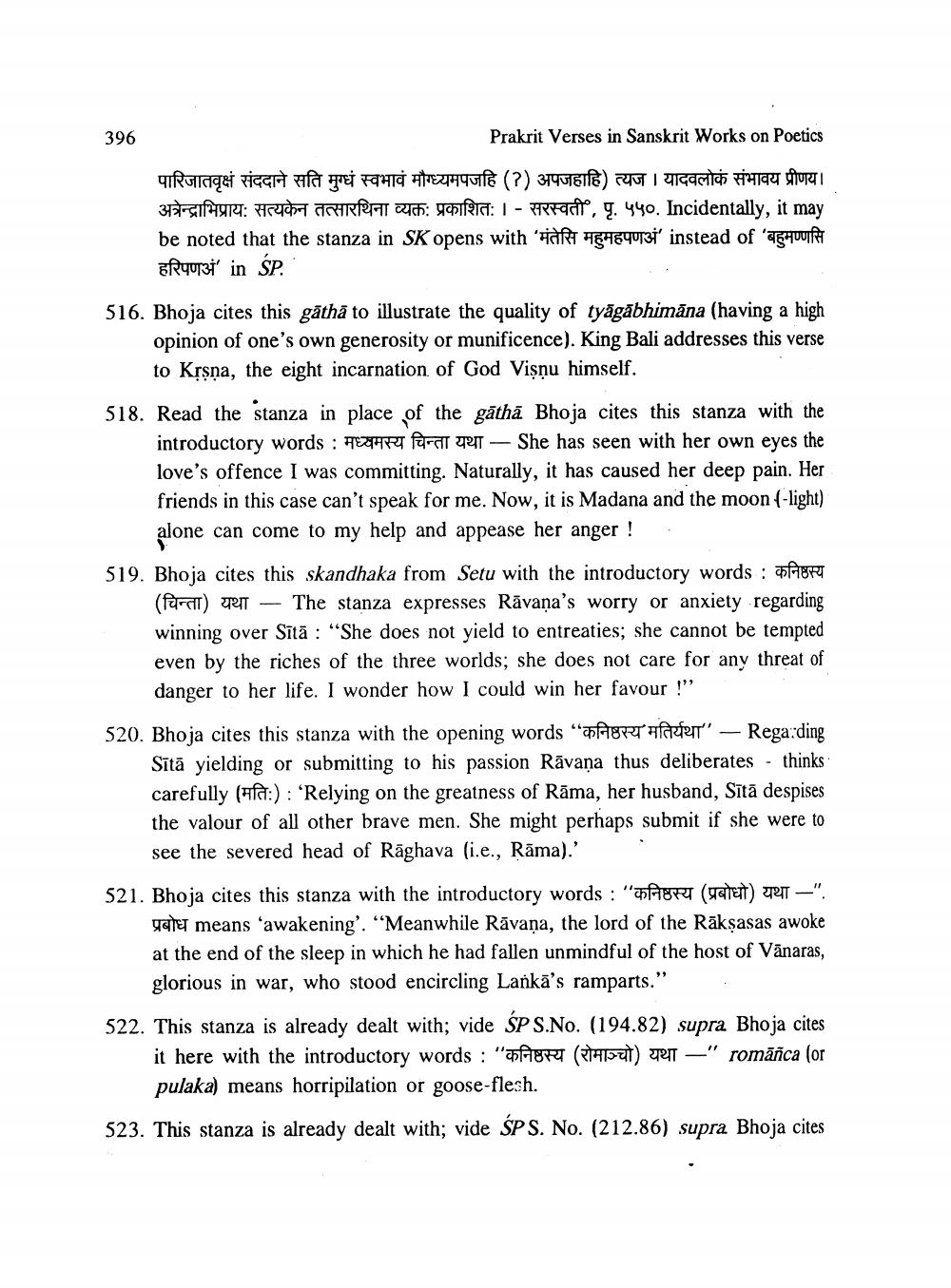________________
396
Prakrit Verses in Sanskrit Works on Poetics
पारिजातवृक्षं संददाने सति मुग्धं स्वभावं मौग्ध्यमपजहि (?) अपजहाहि) त्यज । यादवलोकं संभावय प्रीणय। 375- RT:
V R IR FIT 24: Tota: I - paradite, g. 440. Incidentally, it may be noted that the stanza in SK opens with 'मंतेसि महुमहपणअं' instead of 'बहुमण्णसि
हरिपण' in SP. 516. Bhoja cites this gāthā to illustrate the quality of tyāgābhimāna (having a high
opinion of one's own generosity or munificence). King Bali addresses this verse to Krsna, the eight incarnation of God Vişnu himself.
518. Read the stanza in place of the gătha Bhoja cites this stanza with the
introductory words : HEART Parit URIT — She has seen with her own eyes the love's offence I was committing. Naturally, it has caused her deep pain. Her friends in this case can't speak for me. Now, it is Madana and the moon (-light) alone can come to my help and appease her anger!
519. Bhoja cites this skandhaka from Setu with the introductory words : phone
(Para) Jen - The stanza expresses Rāvana's worry or anxiety regarding winning over Sīta : "She does not yield to entreaties; she cannot be tempted even by the riches of the three worlds; she does not care for any threat of
danger to her life. I wonder how I could win her favour !" 520. Bhoja cites this stanza with the opening words are afrefert'' – Regarding
Sītā yielding or submitting to his passion Rāvana thus deliberates - thinks carefully (fa:) : “Relying on the greatness of Rāma, her husband, Sītā despises the valour of all other brave men. She might perhaps submit if she were to see the severed head of Rāghava (i.e., Rāma).
521. Bhoja cites this stanza with the introductory words: " RY (watt) UTRIT -".
yata means ‘awakening'. “Meanwhile Rāvaņa, the lord of the Rākṣasas awoke at the end of the sleep in which he had fallen unmindful of the host of Vānaras, glorious in war, who stood encircling Lankā's ramparts.”
522. This stanza is already dealt with; vide SP S.No. (194.82) supra Bhoja cites
it here with the introductory words : "ART (THOUT OUT -" romāñca (or pulaka) means horripilation or goose-flesh.
523. This stanza is already dealt with; vide ŚP S. No. (212.86) supra Bhoja cites




